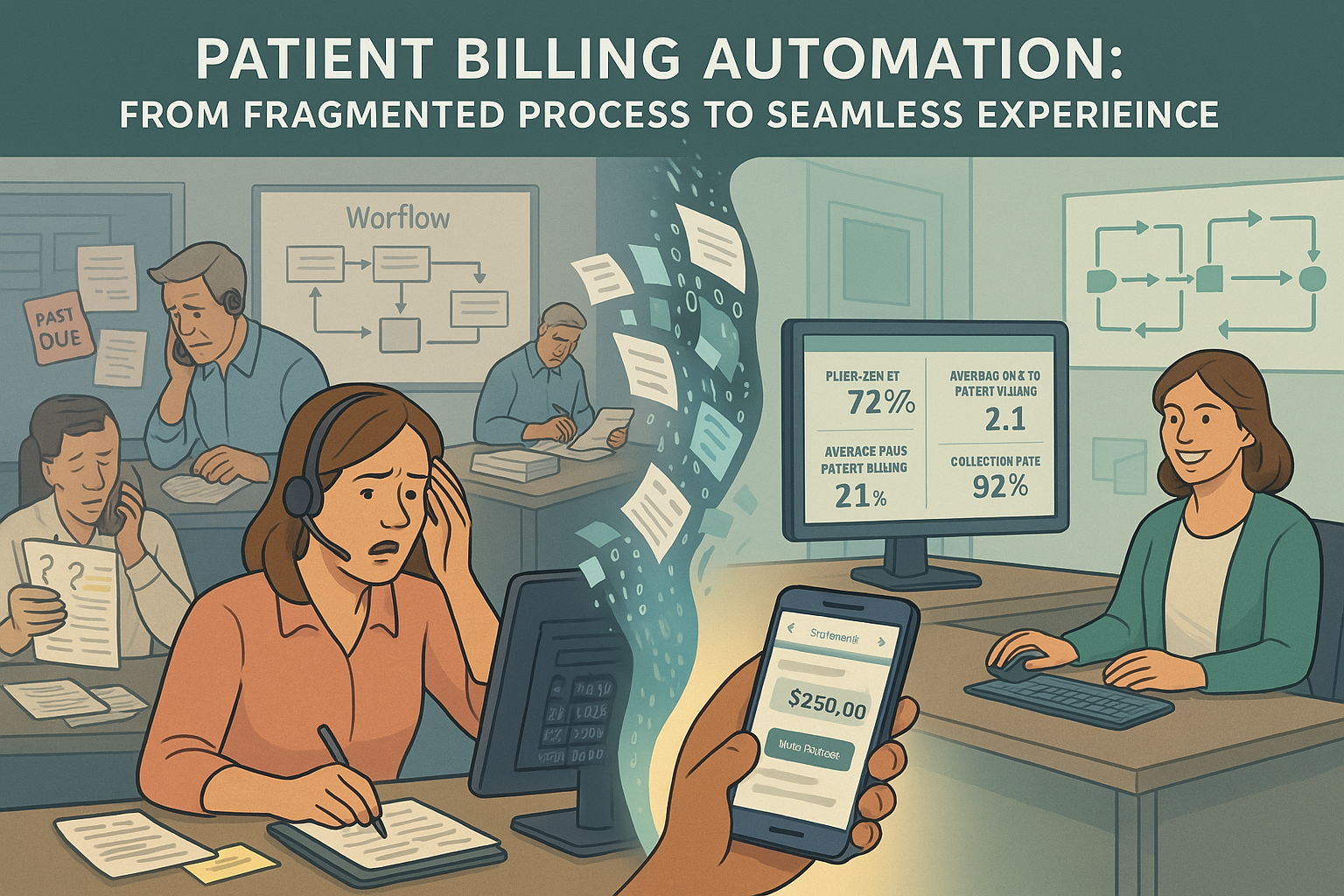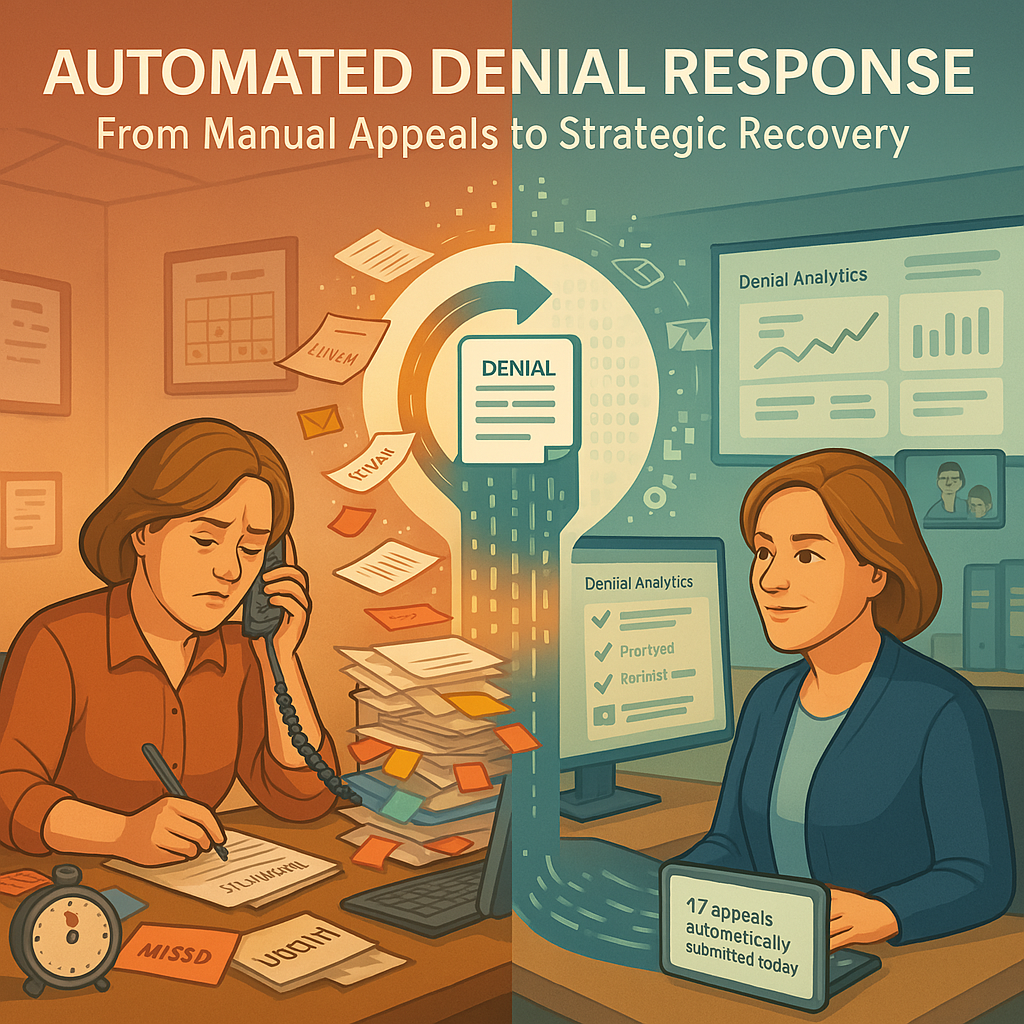Strategic Considerations in Revenue Cycle Outsourcing – Onshore, Offshore, and Hybrid Models
In today’s complex healthcare landscape, efficient Revenue Cycle Management (RCM) is crucial for maintaining financial stability and operational excellence. At Lockbox AI, we understand the challenges healthcare providers face when dealing with RCM vendor performance issues. This guide offers insights and strategies to help you streamline processes and maximize revenue.
Understanding Revenue Cycle Management
RCM is the financial backbone of healthcare organizations, encompassing the entire patient care journey from appointment scheduling to payment collection. An effective RCM process ensures timely and accurate reimbursement, sustaining operations and facilitating growth.
The revenue cycle includes several key stages: patient registration, insurance verification, charge capture, coding, billing, and collections. Each of these stages plays a vital role in the overall process. Patient registration sets the foundation for accurate billing, while insurance verification helps prevent claim denials. Charge capture ensures all services are accounted for, and coding translates these services into billable items. The billing process then submits claims to payers, and collections work to secure payment for rendered services.
Understanding each stage’s significance and how they interconnect is crucial for effective RCM. When all these components work seamlessly together, healthcare providers can optimize their revenue flow and focus on delivering quality patient care.
The Critical Role of Vendor Performance
In the intricate healthcare ecosystem, vendors play a pivotal role in supporting various aspects of RCM. Their performance directly impacts revenue integrity, operational efficiency, and patient satisfaction. Vendors often handle critical tasks such as claims processing, denial management, and patient billing, making their performance integral to the financial health of healthcare organizations.
When vendors perform well, they contribute to a smooth revenue cycle, reducing delays in reimbursement and improving overall financial outcomes. However, poor vendor performance can lead to significant challenges. Revenue leakage may occur due to missed charges or coding errors. Compliance risks can arise if vendors are not up-to-date with the latest regulations. Additionally, subpar vendor performance can damage an organization’s reputation if it results in billing errors or poor patient experiences.
Common Challenges in RCM Vendor Performance
Healthcare organizations often encounter various challenges when managing vendor performance. These may include:
• Inadequate communication
• Subpar service quality
• Billing errors
• Compliance issues
• Lack of transparency in operations
Addressing these challenges requires a proactive approach to vendor management and a comprehensive understanding of RCM processes. It’s essential for healthcare organizations to regularly assess vendor performance, identify areas of improvement, and work collaboratively with vendors to overcome these obstacles.
Strategies for Improving RCM Vendor Performance
At Lockbox AI, we recommend several strategies to enhance vendor performance. First, establish clear expectations by defining performance standards, including turnaround times and accuracy benchmarks. This sets a clear baseline for vendor performance and helps align goals between the organization and its vendors.
Providing ongoing feedback is another crucial strategy. Regular communication with vendors allows for prompt addressing of issues and continuous improvement. This feedback loop helps vendors understand their performance in real-time and make necessary adjustments quickly.
Investing in training and development is also vital. Offer programs to help vendors stay updated on industry best practices, regulatory changes, and your organization’s specific needs. This investment can lead to improved service quality and better alignment with your organizational goals.
Streamlining processes is another effective approach. Work with your vendors to identify and eliminate inefficiencies in RCM processes. This could involve automating repetitive tasks, improving data exchange protocols, or redesigning workflows for better efficiency.
Finally, implementing technology solutions can significantly enhance vendor performance. Leverage RCM software to automate tasks, reduce errors, and improve overall efficiency. Advanced analytics tools can provide insights into vendor performance, helping you make data-driven decisions for continuous improvement.
Leveraging Technology for Enhanced RCM
In today’s digital age, technology plays a crucial role in optimizing RCM processes. Lockbox AI’s advanced solutions can help you automate repetitive tasks, reducing manual errors and streamlining workflows. Our predictive analytics capabilities allow you to identify trends and prevent revenue leakage before it occurs.
We also offer secure communication portals for efficient data exchange between your organization and your vendors. This improves collaboration and reduces the risk of miscommunication. Additionally, our real-time KPI tracking through intuitive dashboards gives you instant visibility into vendor performance, allowing for quick interventions when necessary.
By leveraging technology effectively, healthcare organizations can enhance operational efficiency, improve accuracy, and drive performance improvements across the revenue cycle. The right technological tools can transform your RCM processes, leading to better financial outcomes and improved vendor relationships.
Measuring Success: Tracking and Analytics
To ensure the success of your vendor performance improvement initiatives, it’s essential to leverage tracking and analytics tools. These tools allow you to monitor key performance indicators (KPIs), providing a clear picture of how well your vendors are meeting established benchmarks.
With advanced analytics, you can identify trends and patterns in revenue cycle data. This insight can help you predict potential issues before they become significant problems, allowing for proactive management of your RCM processes.
Benchmarking performance against industry standards is another valuable use of analytics. It helps you understand how your organization and your vendors stack up against peers in the healthcare industry, identifying areas where you’re excelling and where there’s room for improvement.
Perhaps most importantly, these tools allow you to quantify the financial impact of improvements. By tracking metrics before and after implementing changes, you can demonstrate the ROI of your vendor performance optimization efforts.
Ensuring Compliance and Regulatory Adherence
Compliance with healthcare regulations is paramount for maintaining ethical practices and mitigating risks. Key considerations include HIPAA compliance, adherence to coding and billing guidelines, and fraud and abuse prevention measures.
HIPAA compliance ensures the protection of patient health information, a critical aspect of healthcare operations. Your vendors must be well-versed in HIPAA requirements and have robust systems in place to safeguard patient data.
Adherence to coding and billing guidelines is essential for accurate reimbursement and avoiding regulatory scrutiny. Vendors should stay updated on the latest coding changes and billing requirements to ensure compliance.
Implementing fraud and abuse prevention measures is another crucial aspect of regulatory adherence. This includes regular audits, staff training, and robust documentation practices.
Comprehensive documentation and record-keeping are vital for demonstrating compliance in case of an audit. Ensure your vendors maintain detailed records of all RCM activities and can provide this information when needed.
Regular audits and monitoring should be part of your compliance strategy. These help identify potential issues early, allowing for quick corrective action and minimizing compliance risks.
Building Strong Vendor Relationships
Strong, collaborative relationships with vendors are essential for optimizing performance. Foster open communication by establishing regular check-ins and creating channels for ongoing dialogue. This helps address issues promptly and builds trust between your organization and your vendors.
Adopt a partnership approach, viewing your vendors as extensions of your own team rather than just service providers. Involve them in strategic discussions about your RCM goals and challenges. Their insights can be valuable in developing effective solutions.
Conduct regular performance reviews to assess how well vendors are meeting your expectations. These reviews should be two-way conversations, allowing vendors to provide feedback on how your organization can better support their efforts.
Establish clear conflict resolution protocols to address disagreements or issues professionally and efficiently. This helps maintain a positive working relationship even when challenges arise.
Finally, recognize and appreciate vendor contributions. Acknowledge when vendors exceed expectations or contribute to significant improvements in your RCM processes. This fosters a positive relationship and motivates vendors to continue delivering high-quality service.
The Future of RCM: Trends and Innovations
As we look ahead, several trends are shaping the future of RCM:
• AI and automation technologies
• Telehealth and virtual care models
• Value-based care reimbursement
• Advanced data analytics and predictive insights
• Evolving regulatory landscapes
• Enhanced focus on patient financial experience
At Lockbox AI, we’re committed to staying at the forefront of these trends, ensuring our clients are well-positioned for success in the evolving healthcare landscape. By implementing these strategies and leveraging Lockbox AI’s cutting-edge solutions, healthcare organizations can optimize their RCM vendor performance, drive efficiency, and achieve sustainable financial success.





